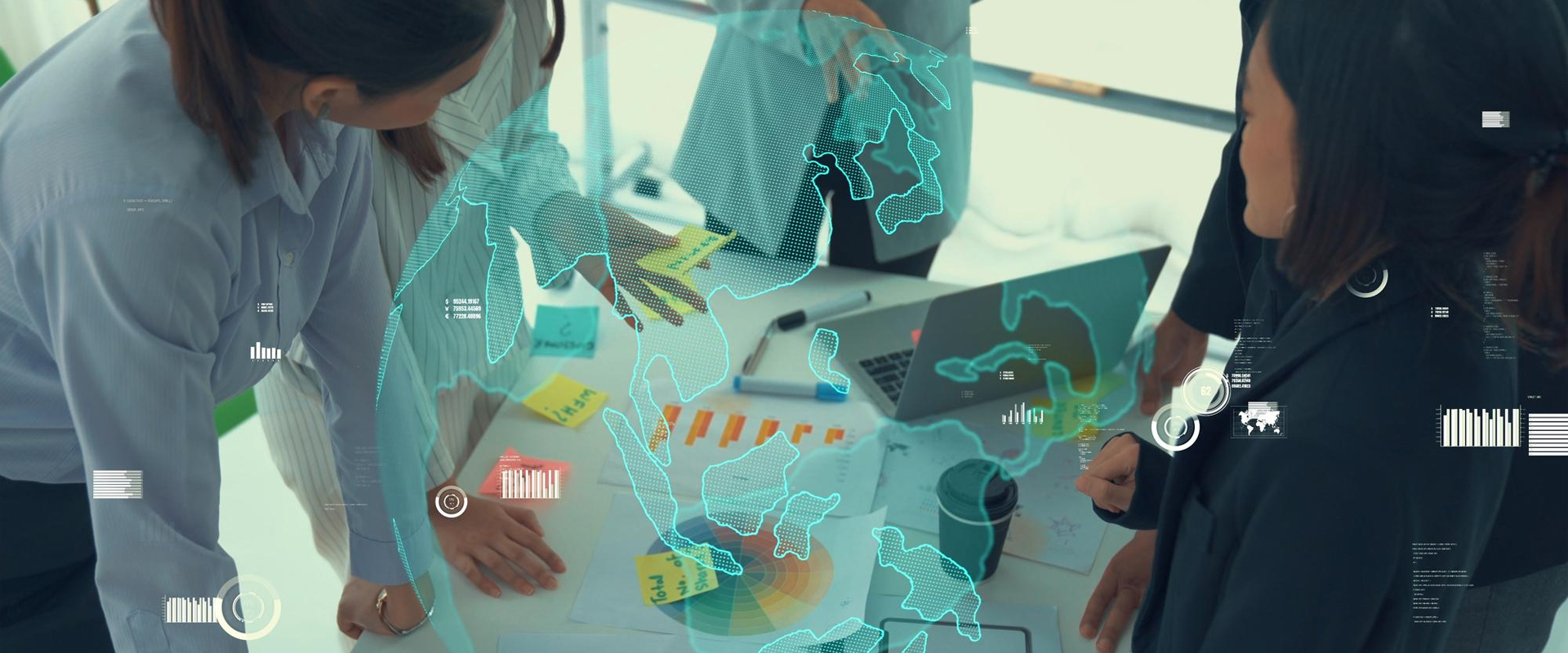Last Updated on April 22, 2025
Introduction
Clinical trial technology is evolving rapidly, and technology lies at the forefront of this transformative change. In 2024, we can experience the trend shifts reshaping how trials are conducted, analyzed, and understood. These trends enhance efficiency, improve patient experiences, streamline data collection, and accelerate drug development processes.
Here, we dive into the top five innovative clinical trial technology trends this year and how they’re impacting this industry.
Why is There a Need for Clinical Trial Technology Trends?
Clinical trial technology trends is driven by the growing demands for faster, more efficient, and patient-centered clinical research. Traditional clinical trial processes often face challenges like lengthy timelines, high costs, and complex logistics. All these factors can delay life-saving treatments from reaching patients. Additionally, the need for diversity and representation in trials shows the need for reaching a broader range of participants.
Additionally, advanced technologies like artificial intelligence, decentralized trials, and wearable devices enable researchers to streamline trial processes. It also enhances data accuracy, and improve patient engagement.
Clinical Trial Technology Trends in 2024
Let’s seek the trends that are innovating the way clinical trials are being conducted:
Decentralized Clinical Trials (DCTs):
One of the most prominent clinical trial technology trends in 2024 is the rise of decentralized clinical trials (DCTs). Traditional clinical trials often require participants to visit specific sites, limiting participation due to location constraints or mobility issues. DCTs are breaking down these barriers. They do so by using technology to allow participants to take part in trials from the comfort of their homes.
Moreover, wearable technology, smartphone apps, and telehealth are important components of DCTs. For example, a patient can participate in telehealth appointments, and report symptoms without ever having to visit a clinic. This trend increases patient retention rates while also making clinical trials more accessible. Furthermore, researchers may access multiple demographics thanks to the remote arrangement, which enhances trial data and lowers dropout rates.
Additionally, DCTs are showing promising results for patient engagement and trial efficiency. By reducing in-person requirements, researchers can manage costs more effectively, making DCTs a valuable component of modern clinical research.
Artificial Intelligence and Machine Learning in Data Analysis:
Artificial intelligence (AI) and machine learning (ML) are rapidly becoming essential tools in clinical research. The integration of these technologies is transforming the way we analyze, process, and interpret data. With large volumes of data generated in clinical trials, AI algorithms can swiftly identify patterns. It can also detect anomalies, and make predictive analyses, tasks that would otherwise take months using traditional methods.
Additionally, AI-driven predictive modeling is very valuable. If fed historical data, it can analyze the data patterns to predict which patients can respond positively to treatment. This data-driven approach to patient matching allows researchers to recruit individuals to benefit from the trial.
Clinical trial technology trends involving AI and ML also extend to optimizing trial design. By simulating various trial scenarios, researchers can anticipate potential outcomes, identify risks, and refine their study protocols. This trend has potential to shorten the drug development cycle and reduce trial costs, while improving data quality and decision-making.
Blockchain for Data Security and Transparency:
Blockchain technology has gained traction in multiple industries. Clinical trial industries are no exception. Among 2024’s clinical trial technology trends, blockchain stands out as a promising one to enhance data security and transparency. Ensuring the confidentiality and integrity of data is crucial in clinical trials because it fosters confidence between regulators and participants. For these purposes, blockchain’s decentralized, impenetrable ledger technology is perfect.
Furthermore, clinical trials can store and track data securely through blockchain technology. Through its utmost protection policies, only authorized users can access their accounts. Each data entry is encrypted, timestamped, and recorded on a digital ledger that cannot be altered retroactively, preserving the authenticity of trial data. This transparency is especially critical in clinical trials that involve sensitive patient information or face high regulatory scrutiny.
Wearable Devices and Remote Monitoring:
With the increasing usage of gadgets like smartwatches, biosensors, and other digital health tools, wearable technology is one of the more obvious developments in clinical trial technology. Researchers can now continuously monitor patient health data thanks to wearable technology, which offers insightful information beyond what might be obtained from sporadic clinic visits.
Additionally, wearables can track various health metrics such as heart rate, physical activity, sleep patterns, and even glucose levels. This constant data flow offers real-time monitoring, enabling researchers to detect side effects early, adjust treatments as necessary, and reduce adverse events. Moreover, wearable devices increase patient compliance, as they require minimal effort from participants to record their data.
Advanced-Data Analytics and Real-World Evidence (RWE) Integration:
Advanced data analytics and Real-World Evidence (RWE) integration are reshaping clinical trials by bridging the gap between controlled study environments and real-life patient settings. This method involves data collection outside of traditional clinical trials like electronic health records, insurance claims, and patient surveys. Analyzing this data helps researchers understand how a treatment performs in diverse patient populations, providing a holistic view of a drug’s effectiveness.
RWE, one of the main developments in clinical trial technology, is being combined with sophisticated data analytics to reveal insightful information. Researchers can assess a treatment’s long-term effects, spot safety issues, and modify trial designs according to patient demographics and other practical considerations by fusing RWE with trial data. This integration offers a thorough grasp of a drug’s performance across a range of demographics, which aids in regulatory decision-making.
Also learn about Electronic Case Report Forms: Innovation in Clinical Research.
Pros and Cons
As with any other trend, there are pros and cons associated with clinical technology trends in 2024.
Pros:
The adoption of technology in clinical trials offers several major benefits. Technologies like decentralized trials, AI-based data analysis, and wearable devices have transformed the way clinical research is conducted, making it faster, more accurate, and more patient-friendly. For example, decentralized trials enable remote participation, making it easier to recruit and retain diverse populations, leading to data that is more representative of the broader population.
Cons:
Despite these advantages, there are also challenges to implementing new technologies in clinical trials. One of the main hurdles is the significant upfront investment required for infrastructure and staff training, which can be cost-prohibitive for smaller organizations. Additionally, the continuous collection and storage of patient data through devices and digital platforms raise concerns about data privacy and security, as sensitive information is more vulnerable to breaches.
Conclusion
To conclude, as the technology is increasing, so are the boundaries pushing for more technology integration into clinical trials. This blog briefs about clinical trial technology trends in 2024. Decentralized clinical trials, artificial intelligence, blockchain, wearable devices, and real-world evidence integration are making trials more efficient, data-driven, and patient-centered than ever before. These trends are not only enabling faster drug development but also building greater trust among patients and stakeholders.
Additionally, Minerva Research Solution is offering updated clinical trial solutions by providing support in the form of recruitment marketing, data operations, etc.
Contact us today to gain optimal trial solutions.







